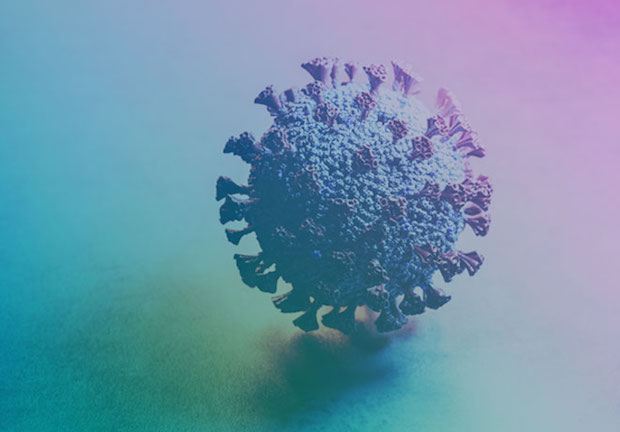Pandemic partnership for health professionals and the church. An article by Ted Lankester.
![Image via [link]Lausanne Movement[/link].](https://cms.evangelicalfocus.com/upload/imagenes/60218d58624a7_lgafaith.jpg) Image via [link]Lausanne Movement[/link].
Image via [link]Lausanne Movement[/link].
The impact of the church on health and development is much greater than it appears.
There are two main reasons for this: First, Christians working at the front line are so busy that they often do not have time to document their achievements in ways that enter the public domain.
Second, though hard to quantify, the media, especially in high income countries, is often led by those who fail to understand ‘spiritual anthropology’ and the significant roles that churches can play.
But recently this has started to change. For example, a medical journal, The Lancet, has published on the linkage between faith and health: ‘The role of faith in Faith-based organizations and their common visions of stewardship, inclusiveness, dignity, and justice make many such organizations ideally suited as key partners for delivering the 2030 Sustainable Development Goals.’ 1
The recent coronavirus pandemic has exemplified the increasing role of the church in society. Some of the major questions we therefore need to ask include:
What long term impact will COVID-19 have on global health and development?
What are some possible solutions?
How can the church play the most useful role at this time?
How can health professionals be best involved and collaborate most effectively?

[photo_footer] Image via Lausanne Movement. [/photo_footer]
Richard Horton, Editor of The Lancet writes: ‘Global health has entered a period of rapid reversal. De-development is the new norm’. 2 And the reason, simply stated by a Kenyan leader of the Arukah Network, is this—‘COVID, COVID, COVID, other diseases don’t count.’ 3
Here are some crucial examples of ways in which COVID-19 will be reversing global health.
Immunizations
In July 2020 the Director General of the World Health Organization stated: ‘The number of children dying from missed vaccinations is likely to far outpace the numbers of people dying from COVID-19.’4
I would add that the growing number of ‘anti-vaxxers’ in the United States and other countries is greatly adding to this problem.
Three infectious disease killers: AIDS, tuberculosis, and malaria
The Global Fund Partnership has saved 38 million lives since 2002, including 6 million in 2019 alone. However, the Results Report 2020 shows that much of that progress could now be lost due to the knock-on effects of COVID-19. Deaths and infections from HIV, TB, and malaria could skyrocket in the next 12 months, the report warns. 5
National economies
Their impact on community livelihoods and critically on the actual survival of the most vulnerable is vital. According to the World Bank, the pandemic, coupled with a collapse in commodity prices and a plague of locusts, have hit African economies particularly hard, putting 43 million more people at risk of extreme poverty. 6
Non-Communicable Diseases (NCDs)
The term does not exactly roll off the tongue. But NCDs account for about 7 deaths in 10 worldwide, that is, 41 million each year. 7
They include cancer, diabetes, and cardiovascular diseases such as hypertension. Moreover 1 in 5 people are at increased risk of COVID-19 owing to underlying NCDs.8
Impact on women
It is estimated that 47 million women will be prevented from access to contraception, seven million unintended pregnancies are predicted to occur over six months, some from transactional sex to earn income for the family. 9
Save the Children estimates there will be 2.5 million more child marriages due to the pandemic.10
Gender-based violence
For every three months the lockdown continues, an alarming additional 15 million cases of gender-based violence are expected. 11
How might we, along with others of kind intention, help to bring this about? We will start with the crucial role of the community. A recent paper explains why:
Community members, including the marginalized, identify solutions that work best in their situations. They know what knowledge and rumours are circulating. They can provide insight into stigma and other barriers. They are well placed to work with others from their communities to devise collective responses. 12
Primary health care is being given even more prominence as a response to ‘post-COVID’. A quote from the WHO World Health Report in 2008 remains highly relevant: ‘Primary health care (PHC) brings balance back to health care and puts families and communities at the hub of the health system.
With an emphasis on local ownership it makes space for solutions created by communities, owned by them and sustained by them.’ 13 Countries especially in Africa are giving PHC a renewed priority.
This includes the training of many new Community Health Workers (CHWs). Kenya is currently training 100,000. In Sierra Leone CHWs already outnumber doctors by 95 to 1. 14
‘Home-grown solutions’ could be another approach. It is really quite easy to learn how to take your own blood pressure or even measure your own blood glucose.
This self-help approach also helps to demystify and de-medicalize common health conditions which are part of people’s lives. But it must not discourage people from reporting new or worsening symptoms.
One final suggestion is the rapidly growing telemedicine and use of information technology including WhatsApp and mobile phones. As one community member recently expressed, ‘Whether I’m deep in Malawi or deep in the Amazon all I need is a mobile phone and connection that allows me to talk to a clinician.’

Bearing in mind that more that 84% of people worldwide personally identify with a religious faith and the number is growing, except in Europe, and nearly one third consider themselves Christian, 15 faith leaders have two overwhelming advantages.
First, they are present in nearly all communities in the world. Second, they are often listened to more than others who offer advice or make pronouncements.
‘I’ve seen many behaviour changes being much faster and more sustainable since faith leaders have been involved’, said Esther Lehmann-Sow, partnership leader for faith and development at World Vision.
‘People are more likely to trust a faith leader than a nongovernmental organization they may not be familiar with’, said Umar Rashid, health and WASH lead of aid group Muslim Hands, adding that ‘the organization is more welcome in communities where it has religious partnerships.’ 16
There are two important provisos for Christian leaders, church pastors, and their congregations. First, they must believe in, follow, and ‘preach’ the science.
Second, they need to avoid defaulting to a position that states that faith and prayer are all we need. That was often the case in the early stages of AIDS with sometimes disastrous results. Of course, faith and prayer are important but our God is Lord of all, both faith and nature.
Worldwide, Christian leaders must now step up to have a greater impact, not just at the community level, but at the regional and national level, making sure their message is relevant, based on truth and spoken with gentle authority.
There are multiple ways, but we need to note some key underlying principles:
Enquire from God and wise colleagues regarding personal priorities in our own situations. It is important to consider social care and mental health problems.
As far as circumstances allow, ensure that those with conditions unconnected with COVID are able to receive the diagnosis and treatment they need.
Spend time with church leaders both to encourage them in the bewildering situations many are facing, and also to guide them to speak truth and give clear messages to their congregations and communities.
Set boundaries for ourselves so that we do not burn out, or become exhausted, cynical, or ineffective. And crucially that we do not neglect or short-change our own families.
COVID-19 crisis is a great opportunity for collaboration. However, because of fear and anxiety this does not happen automatically. We must be intentional in making this happen.
Here are some ways we can bring this about. At a local and regional level we connect with others, find common grounds and bring encouragement and affirmation.
Nationally through networks of Christian health professionals, we bring about constructive change and compassionate care, even influencing national health policies where possible. Internationally we support and engage with existing groups.
These include the International Christian Medical and Dental Association (ICMDA), 18 Christian Health Associations in Africa (ACHAP), 19 and equivalent groups in west Asia.
Also, Christian Connections for International Health (CCIH) based in Washington DC, 20 and the small but increasingly effective Arukah Network for Community Global Health. 21
We also need to be aware of those groups, both faith-based and secular, who are speaking constructively into the current situation. Two examples are the World Health Organization, 22 and the Berkley Center for Religion, Peace, and World Affairs. 23
During times of crisis, alongside lamentation, we believe in the redemptive hope that God will bring unexpected blessings. We recognize our role to create these.
The church and Christians at all levels can bring kind leadership, community example, and creative compassion. These are the very attributes that Jesus taught us, which we all need at such a time as this. 24
Ted Lankester serves as President of Thrive Worldwide, Co-Director and Founder of Arukah Network, and External Lecturer on Community Health at London School of Hygiene and Tropical Medicine.
This article originally appeared in the January 2021 issue of the Lausanne Global Analysis and is published here with permission. To receive this free bimonthly publication from the Lausanne Movement, subscribe online at www.lausanne.org/analysis.
‘1. Faith-based health-care,’ The Lancet, Vol 386 (July 2015), https://www.thelancet.com/series/faith-based-health-care.
2. The Lancet, Vol 396 (4 July 2020): 14.
3. Arukah Network for Community Global Health, www.arukahnetwork.org. This is a collaborative community based network and movement, open for all to join.
5. https://www.theglobalfund.org/en/news/2020-09-14-global-fund-partnership-has-saved-38-million-lives/
8. The Lancet, Vol 396 (5 September 2020): 649.
9. https://news.un.org/en/story/2020/04/1062742
12. C. Marston et al., ‘Community participation is crucial in a pandemic,’ The Lancet, Vol 395 (30 May 2020): 1676-77 .
13. https://www.who.int/mediacentre/news/releases/2008/pr38/en/
14. The Lancet, Vol 396 (18 July 2020): 150-51.
15. https://www.pewforum.org/2012/12/18/global-religious-landscape-exec/
16. https://www.devex.com/news/hygiene-and-hymns-why-wash-programs-need-faith-leaders-97561
17. Editor’s note: See article entitled, ‘Kingdom Opportunities for Bridging COVID-19 Disparities,’ by Stephen Ko, Paul Hudson, & Jennifer Jao, in the November 2020 issue of Lausanne Global Analysis, https://www.lausanne.org/content/lga/2020-11/kingdom-opportunities-for-bridging-covid-19-disparities.
22. https://www.who.int/teams/risk-communication/faith-based-organizations-and-faith-leaders
23. https://berkleycenter.georgetown.edu/
24. Ted Lankester and Nathan Grills, ed., Setting Up Community Health and Development Programmes in Low and Middle Income Settings (Oxford: Oxford University Press, 2019). This book is relevant to many issues described above, available from OUP.

Las opiniones vertidas por nuestros colaboradores se realizan a nivel personal, pudiendo coincidir o no con la postura de la dirección de Protestante Digital.
Si quieres comentar o